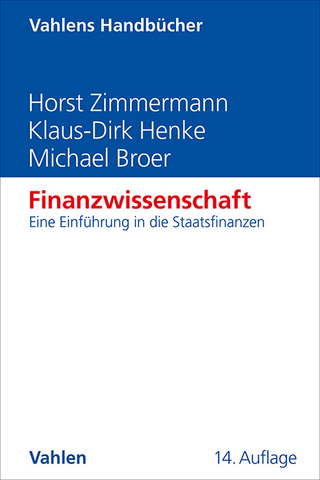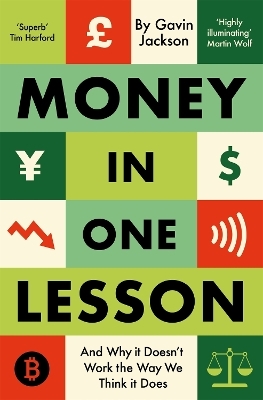
Exchange Rate Regimes in the Modern Era
Seiten
2010
MIT Press (Verlag)
978-0-262-01365-9 (ISBN)
MIT Press (Verlag)
978-0-262-01365-9 (ISBN)
- Titel ist leider vergriffen;
keine Neuauflage - Artikel merken
An analysis of the operation and consequences of exchange rate regimes in an era of increasing international interdependence.
The exchange rate is sometimes called the most important price in a highly globalized world. A country's choice of its exchange rate regime, between government-managed fixed rates and market-determined floating rates has significant implications for monetary policy, trade, and macroeconomic outcomes, and is the subject of both academic and policy debate. In this book, two leading economists examine the operation and consequences of exchange rate regimes in an era of increasing international interdependence.
Michael Klein and Jay Shambaugh focus on the evolution of exchange rate regimes in the modern era, the period since 1973, which followed the Bretton Woods era of 1945-72 and the pre-World War I gold standard era. Klein and Shambaugh offer a comprehensive, integrated treatment of the characteristics of exchange rate regimes and their effects. The book draws on and synthesizes data from the recent wave of empirical research on this topic, and includes new findings that challenge preconceived notions.
The exchange rate is sometimes called the most important price in a highly globalized world. A country's choice of its exchange rate regime, between government-managed fixed rates and market-determined floating rates has significant implications for monetary policy, trade, and macroeconomic outcomes, and is the subject of both academic and policy debate. In this book, two leading economists examine the operation and consequences of exchange rate regimes in an era of increasing international interdependence.
Michael Klein and Jay Shambaugh focus on the evolution of exchange rate regimes in the modern era, the period since 1973, which followed the Bretton Woods era of 1945-72 and the pre-World War I gold standard era. Klein and Shambaugh offer a comprehensive, integrated treatment of the characteristics of exchange rate regimes and their effects. The book draws on and synthesizes data from the recent wave of empirical research on this topic, and includes new findings that challenge preconceived notions.
Michael W. Klein is William L. Clayton Professor of International Economic Affairs at the Fletcher School, Tufts University. Jay C. Shambaugh is a Visiting Associate Professor at the McDonough School of Business at Georgetown University and was the Senior Economist for International Economics and then Chief Economist at the White House Council of Economic Advisers from 2009 to 2011.
| Erscheint lt. Verlag | 1.1.2010 |
|---|---|
| Reihe/Serie | The MIT Press |
| Zusatzinfo | 10 figures, 38 tables; 48 Illustrations, unspecified |
| Verlagsort | Cambridge, Mass. |
| Sprache | englisch |
| Maße | 152 x 229 mm |
| Gewicht | 522 g |
| Themenwelt | Wirtschaft ► Volkswirtschaftslehre ► Finanzwissenschaft |
| Wirtschaft ► Volkswirtschaftslehre ► Makroökonomie | |
| ISBN-10 | 0-262-01365-7 / 0262013657 |
| ISBN-13 | 978-0-262-01365-9 / 9780262013659 |
| Zustand | Neuware |
| Haben Sie eine Frage zum Produkt? |
Mehr entdecken
aus dem Bereich
aus dem Bereich
eine Einführung in die Staatsfinanzen
Buch | Hardcover (2024)
Vahlen (Verlag)
CHF 55,70
New Foundations
Buch | Softcover (2022)
Edward Elgar Publishing Ltd (Verlag)
CHF 89,95
and why it doesn't work the way we think it does
Buch | Softcover (2023)
Pan Books (Verlag)
CHF 19,15


